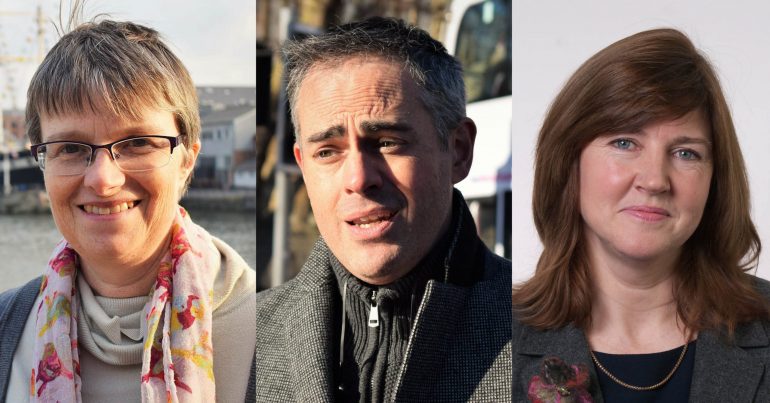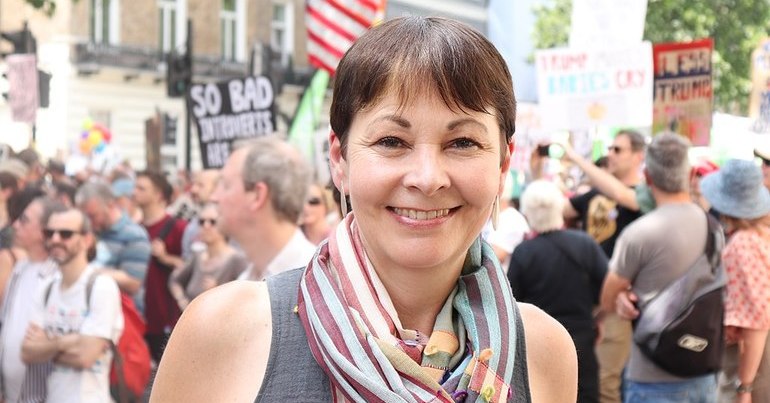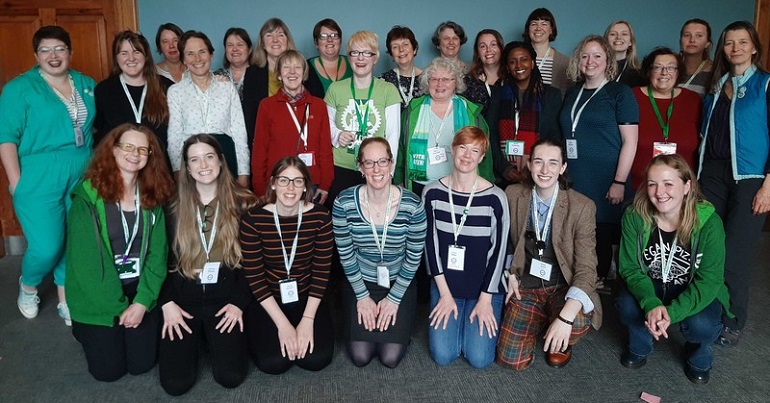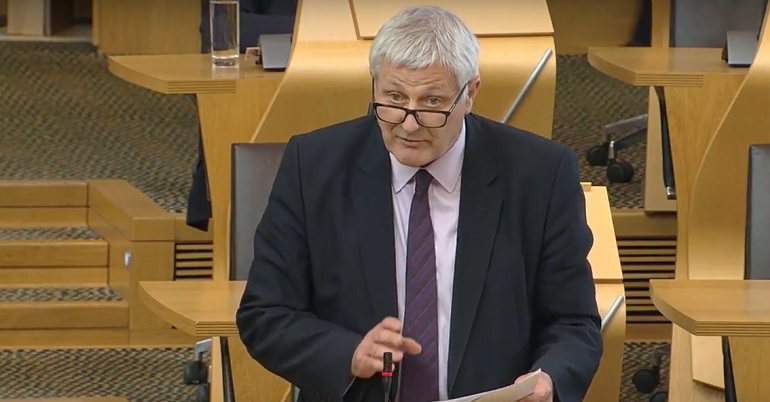Greens reiterate calls for Universal Basic Income – UK Green news round up issue 59
Greens reiterate calls for a Universal Basic Income

With the latest government announcements providing little alleviation of lockdown, calls for the introduction of a Universal Basic Income (UBI) have grown. A UBI is a non-means tested payment made by the government to all people within a country to assist meet people’s basic needs.
Greens have long advocated for a UBI. And this week a series of high profile Green politicians reiterated these calls.
Arguing for more financial support for people in the ongoing coronavirus crisis, former Green MEP Molly Scott Cato wrote in The Ecologist:
The obvious answer is the long-standing Green policy of a Universal Basic Income (UBI) scheme. It would provide each individual with an income sufficient to meet their basic needs with additional payments to cover housing costs for those in rented accommodation and for the disabled.
Scott Cato continued:
Such a policy would have more effectively underpinned the lives of citizens than the complex system of schemes devised by the chancellor. And it is those who have slipped through his net who are the best argument for a basic income beyond the crisis.
She was joined in these calls by Green Party of England and Wales co-leader Jonathan Bartley. Writing earlier this week in Bright Green, Bartley criticised Labour’s shadow chancellor Anneliese Dodds for failing to support the a UBI. He wrote:
It’s clear that only universal and unconditional protection ensures that nobody is left behind. But even in this time of emergency, the official opposition refuses to call for a UBI.
He went on to argue that a UBI would give people a “dignified life”:
Universal basic income says proudly that each of us is deserving of a dignified life, whether or not we are deemed economically productive especially when that toil is often in a pointless job which serves to make men like Richard Branson even richer while driving our climate off a cliff.
And the Scottish Green Party’s co-convener in the Scottish Parliament Alison Johnstone also joined the calls. In doing so, she hailed the successful trial of universal basic income payments in Finland as being a model that could be followed. She said:
This week’s evidence from Finland is a huge boost for UBI in Scotland, with recipients reporting improved mental health and financial security, among other benefits. What’s more, it has disproved the theory that a UBI would be a disincentive for work
“It is more evidence, if more were needed, that Scotland needs to urgently work to introduce a Universal Basic Income for all.
Caroline Lucas joins group of MPs calling for increased council funding

Local councils are under increasing pressure due to the coronavirus crisis, as services are squeezed and both business rates and car park charges have dropped drastically. And this week Green MP Caroline Lucas joined a group of other parliamentarians in calling for chancellor Rishi Sunak to plug the gap in their finances.
In a letter – signed by 25 other MPs including Liberal Democrat acting leader Ed Davey and Labour MP Hilary Benn – Lucas called for the central government to fund local councils to the tune of an additional £5 billion. The letter read:
An increase on the demand for local government services is likely to be a long-term outcome of the pandemic, not just a short-term consequence of the current demands.
If we are going to sustain our social care sector, provide adequate support for the education of our children and ensure that everyone has a roof over their heads, we must address the shortfall in funding to councils as a matter of urgency. We must bridge the gap.
Scottish Green Party Women’s Network hit out at Liz Truss

The women and equalities secretary Liz Truss recently made a series of controversial comments about trans rights. These included proposals to remove support for transgender young people, and calling for the “protection of single-sex spaces” in any reform of the Gender Recognition Act (GRA).
The comments sparked an angry response from many in the LGBTIQA+ community, as well as their allies. Among them was the Scottish Green Party Women’s Network which – in a statement published in Bright Green – accused Truss and her government of being “more likely to take equal rights away than enforce them”. The statement also branded comments such as those made by Truss as “dangerous”. It read:
There is a political strategy that has seized on this fairly basic piece of legislation and conflated it with other issues to ‘divide and conquer’ the equal rights movement. There are all kind of outlandish and dangerous claims about it. Liz Truss’ “single-sex spaces” is one example. To call for their “protection” assumes they are under threat from GRA reform, but when has anyone ever checked your birth certificate at a toilet door? No one needs to pretend to switch gender to force their way in.
The statement continued:
The particular danger in Liz Truss’ use of language is that it appears to accept the falsehood that trans women are a danger to other women and girls and that there must be “checks and balances” to keep us safe. The reality is that trans women are overwhelmingly in danger, not a danger to others. The same fear-mongering that was once used about homosexuality is now being brought to bear on trans people.
And it went on to declare that “trans lives matter” in criticising Truss’ comments on trans young people:
Proper and timely support for trans young people saves lives. Trans people already have to wait years and years for treatment. This leads to trans people having high rates of mental illness, self-harm and suicide. That truly is irreversible. Trans lives matter.
Young Greens announce second round of political education programme

In April, the Young Greens of England and Wales announced what it described as “an unprecedented programme of training and political education”. And this week, the youth wing launched the next set of online events in its ambitious timetable.
Following a talk from anti-privatisation campaigner Ellen Lees from We Own It, and a training on digital organising – each attended by over 70 people – the next round of events will include talks from Global Justice Now Director Nick Dearden, former Green MEP Alex Phillips and Green peer Jenny Jones.
Speaking on the next leg of the programme, Young Greens co-chair Rosie Rawle told Bright Green:
We’re ecstatic that nearly 400 people have attended our events in the last month alone. In just four weeks, we’ve mobilised hundreds of people to learn about and take action on everything from fighting the privatisation of our health service, to building the next stages of the school strikes movement.
The current crisis has once again revealed that our economic and political system is creaking at the seams. We need to build a new future, and that’s why we’re nurturing a movement of radical, dedicated and talented activists to do just that.
The full programme of events can be found here.
John Finnie calls for public stake in buses to deal with coronavirus fall in use

With the number of people taking public transport having dropped substantially due to the coronavirus pandemic, private bus companies have been repeatedly making please for additional government subsidy to maintain services. This is despite some bus companies still planning to make payouts to shareholders.
The Scottish Green Party’s transport spokesperson this week called for a different approach. He argued that instead of bailing out private bus companies, the Scottish Government should increase the public stake in them. Finnie said:
Bus companies admit that they will struggle to make a profit when social distancing is taking place, but profit should never have been the priority for public transport.
Instead of handing bailouts to shareholders, the Scottish Government and councils should explore ways to increase public stakes in the companies to ensure fleets are maximised, routes continue to serve communities and secure the future of jobs in the sector.
PS. Bright Green has big plans for the future, but we need your input. Take 2 minutes to see what we’re planning and tell us your thoughts.




Leave a Reply